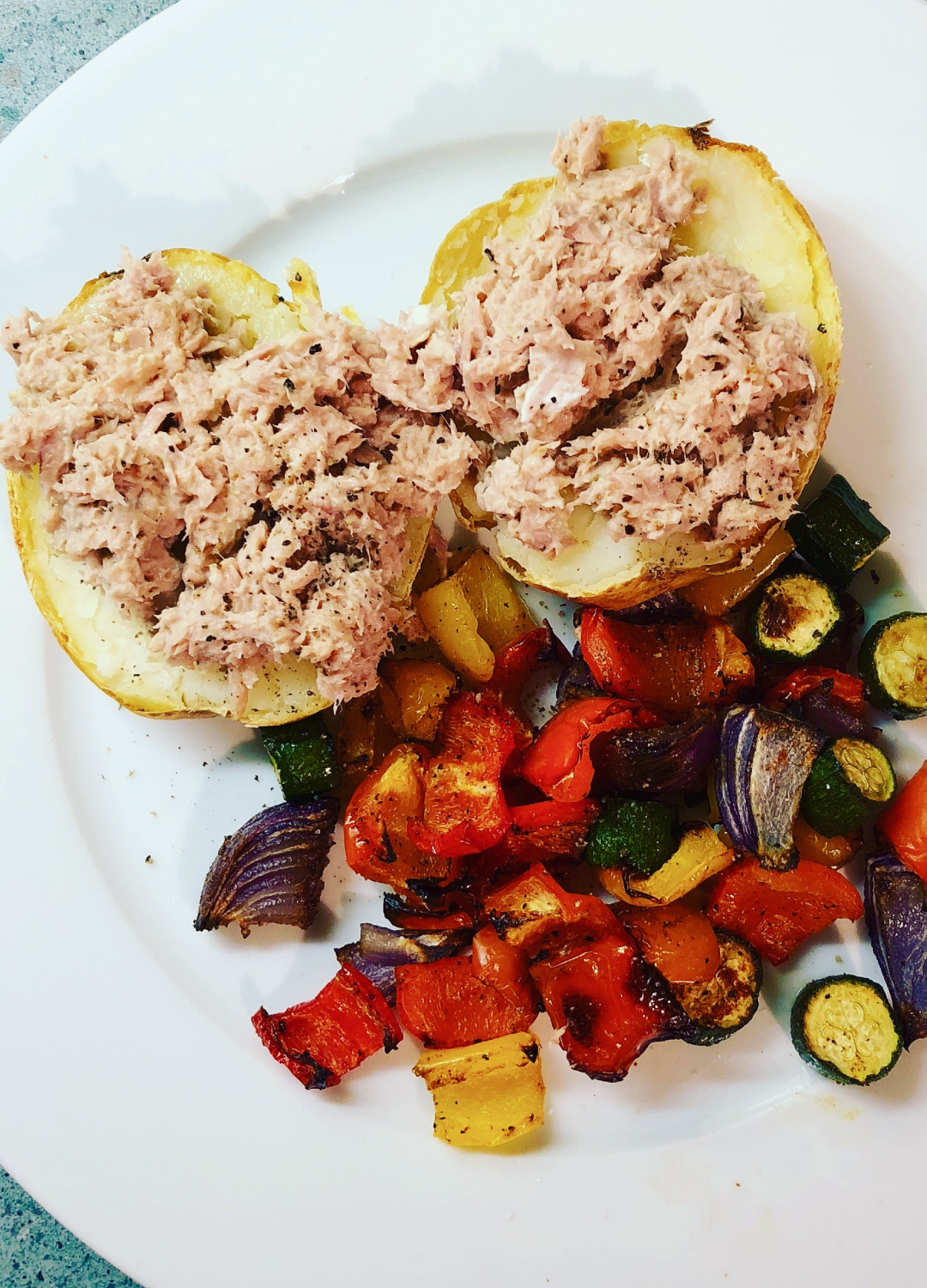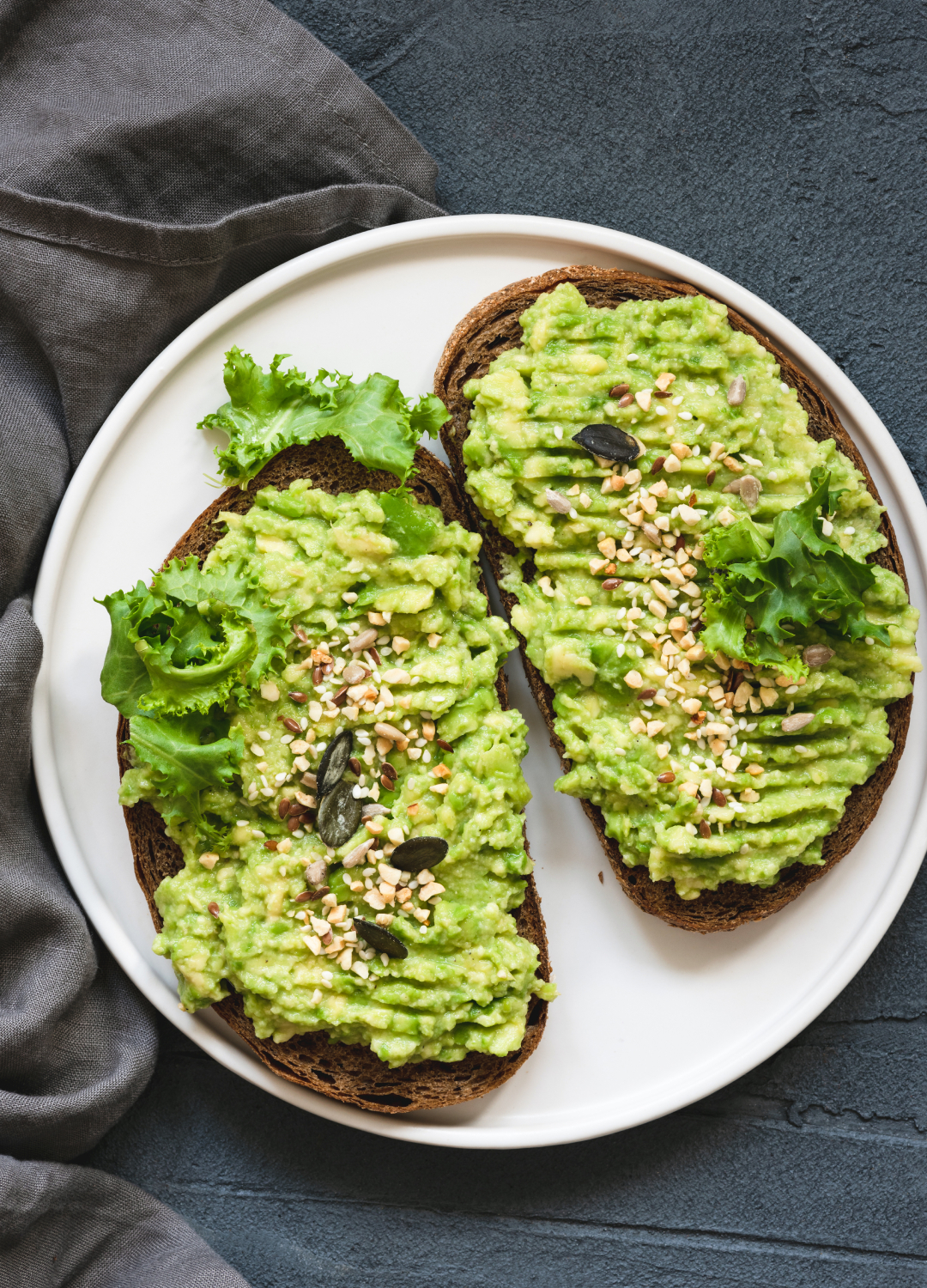32 healthy lunch ideas that are tasty and packed with goodness
Switch up your midday meal with these healthy lunch ideas that are filling, balanced and nutritious


Stuck in a lunchtime rut of the same old soup or sandwiches? These healthy lunch ideas will provide plenty of inspiration when it comes to switching up your lunch routine and making healthier choices.
A healthy lunch doesn't necessarily mean cutting calories or fat, but instead loading your plate up with foods that are high in protein and offer a diverse range of nutrients. Sprinkle on nuts and seeds, or fresh herbs and fruits like pomegranate to bump up the diversity on your plate. Whether your goal is to lose a stone in a month or to get more fibre in your diet, there will be a lunch idea for you on this list.
From creative ways to top toast to more hearty lunch ideas like mushroom ramen, veggie tacos and glazed salmon, as well as hearty soups and vibrant salads, these are 32 healthy lunch ideas (that would work just as well as a lighter dinner, too).
King prawn salad

King prawns are packed with protein and pair well with most flavours. For a fresh and filling salad, grill king prawns with garlic and lemon and combine with green leaves, tomatoes, shredded cabbage and herbs or your choice - parsley and coriander work well.
Bored of Lunch: The Healthy Air Fryer Cookbook | £9.00 at Amazon
Wondering what to cook in your air fryer? This bestselling guide is one of the best cookbooks for healthy, quick and efficient air fryer recipes. These include sweet potato katsu curry, fish tacos and much more, with sections for sweet treats and 'fakeaways'.
Salmon and avocado sandwich

Avocado and salmon are a winning combination. High protein and packed with good fats, avocado and salmon are both nourishing foods that will help give your skin, hair and nails a boost. Team with sliced tomatoes, onions and rocket for a fresh and tasty lunch.
Pine nut and pesto pasta salad

To make your own fresh pesto, blend basil leaves, garlic, pine nuts, extra-virgin olive oil, and Parmesan cheese in a blender or food processor. It will keep in the fridge for a week and work well with pasta, on toast and with chicken or fish. We love it with pasta, rocket and olives, topped with toasted pine nuts for a healthy lunch.
Sweet potato with toppings

Sliced and roasted sweet potato (try it in the air fryer) are a healthy alternative to bread. Top with roasted veg (broccoli and garlic are particularly tasty) and cream cheese with fruits for a sweeter brunch-style lunch.
Sign up to our free daily email for the latest royal and entertainment news, interesting opinion, expert advice on styling and beauty trends, and no-nonsense guides to the health and wellness questions you want answered.
Jacket potato with tuna and roasted vegetables

A jacket potato is a classic lunch choice. Team with high-protein tuna and yoghurt with lemon juice and black pepper for a healthier alternative to mayo. Roasted veg is also a great addition for adding more diversity to your plate.
Shakshuka

While the origin of shakshuka is much debated (some say it was first eaten in North Africa, while others claim it's a Middle Eastern dish) there's no question it's a delicious dish which can work as a speedy lunch. Shakshuka usually consists of eggs poached in a sauce of tomatoes, olive oil, peppers, onion, and garlic, often spiced with cumin or paprika.
Avocado on toast

The popularity of avocado on toast shows no signs of slowing down. Avocados are a great source of healthy fat and are very simple to prepare. Crush ripe avocados with salt, pepper, lemon juice and a little olive oil for a smooth avocado paste. Fresh chilli or toasted seeds on top bump will up the nutrition of this simple dish.
Vegetarian chilli

Swap out meat for extra veggies for a nutritional boost for lunch. Batch cooking makes lunchtime easier, and this is a super easy dish to make in batches - all you need to do is add some shredded coriander and lime. If you leave out onions, it will freeze well too.
Glazed salmon and salad

Found yourself with an air fryer but not sure what to make in it other than potatoes? Glazed salmon is an easy lunch - particularly if you have an air fryer. A simple marinade of soy sauce, garlic, ginger and honey will work well if air-frying, baking or pan-frying salmon.
Chickpea bowl

Chickpeas are a filling alternative to meat and a high-protein food. Eat them raw in a salad with lemon juice, salt and pepper or try them roasted with spices like paprika, cayenne pepper or cumin. Simply stick them in the oven (or air fryer) with a little bit of olive oil and your chosen seasoning.
Stir fried vegetables with rice

Quick, fresh and easy, a stir fry is one of our favourite healthy lunch ideas. Fry veg in chilli, ginger and garlic, adding a few splashes of soy sauce and sesame seeds on top for a simple veggie stir fry. Team with rice, or add more veg for a low-carb option - or add some lean protein like chicken breast.
Roasted butternut squash and chickpeas

Put a Moroccan twist on roasted veg by adding spices like cumin and cinnamon. Roasted vegetables work well in a salad with fresh herbs and pomegranate on top, or served with couscous and yoghurt.
Lamb and minty yoghurt in pitta bread

Leftover meats from a Sunday lunch like chicken, beef or lamb work well for weekday lunches. Try lamb with a mint and cucumber yoghurt with lots of salad in toasted pitta bread for a delicious healthy lunch.
Sticky salmon and noodles

Give a Thai twist to Salmon with pad-thai-style flat rice noodles with lime, coriander and cashew nuts. This dish will work well with spring greens or pan-fried vegetables and a sprinkle of crushed peanuts.
Greek salad

A fresh Greek salad consisting of olives, cucumber, tomatoes, onion and feta is full of goodness and tastes delicious with fresh olive oil and lemon. This is a particularly great lunch in the summer months and you can add grilled fish or chicken for an extra protein boost.
Rocket and smoked salmon salad

Peppery rocket works well with smoked salmon and boiled eggs for an easy, protein-packed lunch. Finish the dish with a simple vinegarette of olive oil, lemon juice and white wine vinegar.
Falafel and flatbreads

Tasty falafel makes a filling snack or healthy lunch when teamed with flatbreads, salad and hummus with a drizzle of olive oil. This idea would also work with meatballs or veggie meatballs. Just remember to load up on salad and/or veggies too!
Butternut squash soup

Homemade soup is one of the healthiest lunches you can whip up quickly. Make butternut squash soup more exciting with toppings like toasted nuts, chilli flakes, olive oil and croutons.
Brunch bagel

Layer fried eggs, bacon and avocado for a classic brunch bagel you can eat any time of the day that's packed with good fats (avocado and eggs are both brilliant sources). Grill or air fry the bacon as a healthier option.
Hummus and crudités

Hummus and crudités are a healthy lunch option for when you're in a hurry - carrots, cucumber, peppers and apples are all good options for dipping. Add some toasted wholemeal pitta bread and hard-boiled eggs to make the dish more filling.
Turkey and cheese sandwich

Sometimes all that will do is a sandwich - layer cheese with turkey, pickles and salad for a classic lunch. Turkey is a low-fat option and you can hold the cheese to reduce the fat in your sandwich if desired. Pack in lots of salad leaves and tomato for an extra healthy boost.
DIY bruschetta

Bruschetta typically refers to toasted bread topped with fresh tomatoes and basil, but you can add anything on to toasted sourdough including griddled veg, avocado and fresh cheese like mozzarella or burrata.
Blueberries and yoghurt on toast with chia seeds

While it might feel a bit unorthodox, topping toasted bread with yoghurt and fresh berries is a healthier take on French toast. A drizzle of honey will sweeten this brunch or healthy lunch dish, while chia seeds are a nutritional powerhouse and packed with antioxidants
Pan fried cod with roasted carrots

Delicate white cod pairs perfectly with earthy root vegetables. All you need is a little butter and seasoning when pan-frying white fish and roasting carrots (these work well in the air fryer as well). By keeping seasoning fairly minimal, you can let the ingredients shine through.
Veggie tacos

Veggie tacos are the ultimate healthy comfort food. Load up small tortillas or taco shells with avocado, salsa and sour cream, and pan-fried vegetables seasoned with cajun spices and fresh chilli for a spicy lunch that's packed with flavour.
Scrambled eggs and chives on toast

Scrambled eggs and chives on toast is a typical breakfast dish that can easily translate to a tasty lunch. Go easy on the butter and add a splash of milk instead to make it a healthier option.
Cucumber and cream cheese on toast

Load up wholemeal toast with cream cheese (or swap for cottage cheese for a lower-fat option) and cucumber for an easy and healthy lunch. Toasted pine nuts and fresh herbs will not only taste great but also add more nutrients to your plate.
Gazpacho

Gazpacho is a cold soup made of raw, blended vegetables and it's traditionally served in hot countries, like Spain where the dish originated. To make your own gazpacho at home, blend tomatoes, garlic, olive oil, water, vinegar, onions, cucumbers, and green peppers. Let it chill in the fridge then enjoy!
Hot flaked salmon salad

Roasted salmon works well in a salad. Try marinating salmon with a cajun crust before flaking it with a fork and adding it to a fresh green salad with onion, tomatoes, cucumber and coriander. You could also add fruits like mango and pineapple for a summery twist.
Mushroom ramen

Ramen is the perfect healthy lunch when you're feeling a little under the weather, consisting of comforting flat noodles and a nutritious broth. Ramen is often served with pork or chicken, but mushrooms make a satisfying veggie alternative. A high-quality broth - homemade or shop-bought - is key to a good ramen soup.
Chicken, broccoli and quinoa

Fluffy quinoa is a popular health food as it's high protein and contains all nine of the essential amino acids. A quick and tasty way to serve it is with roasted chicken and pan fried broccoli or greens and garlic.
Ricotta and broad beans on toast

Creamy ricotta pairs well with the fresh flavour of broad beans for a healthy lunch you can rustle up in just a few minutes. Try whipping the ricotta with lemon zest and black pepper to elevate the flavours. Spoon it on top of toasted wholemeal bread for a satisfying lunch that will keep you full until dinner.
Lauren is the former Deputy Digital Editor at woman&home and became a journalist mainly because she enjoys being nosy. With a background in features journalism, Lauren worked on the woman&home brand for four years before going freelance. Before woman&home Lauren worked across a variety of women's lifestyle titles, including GoodTo, Woman's Own, and Woman magazine.

